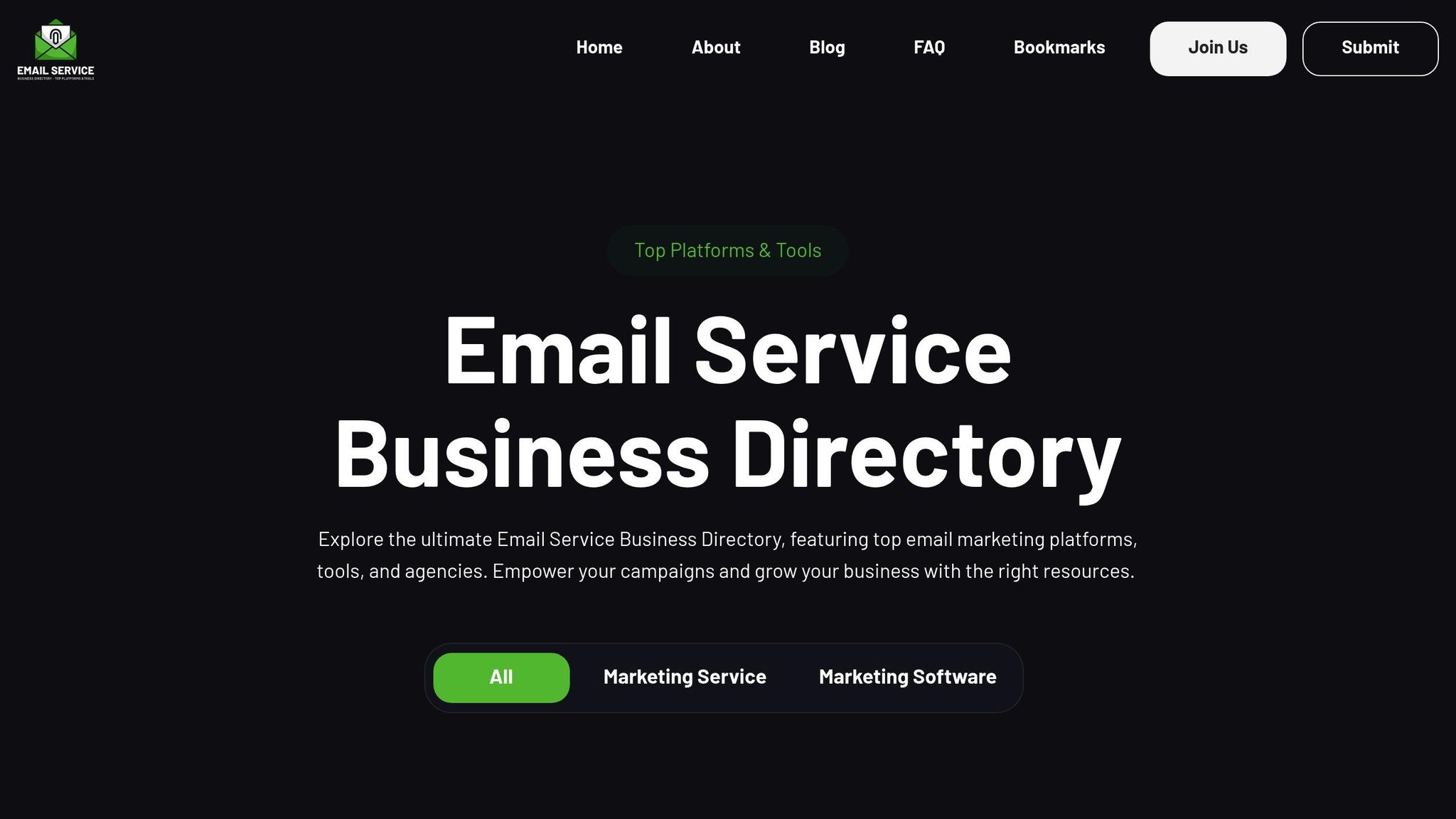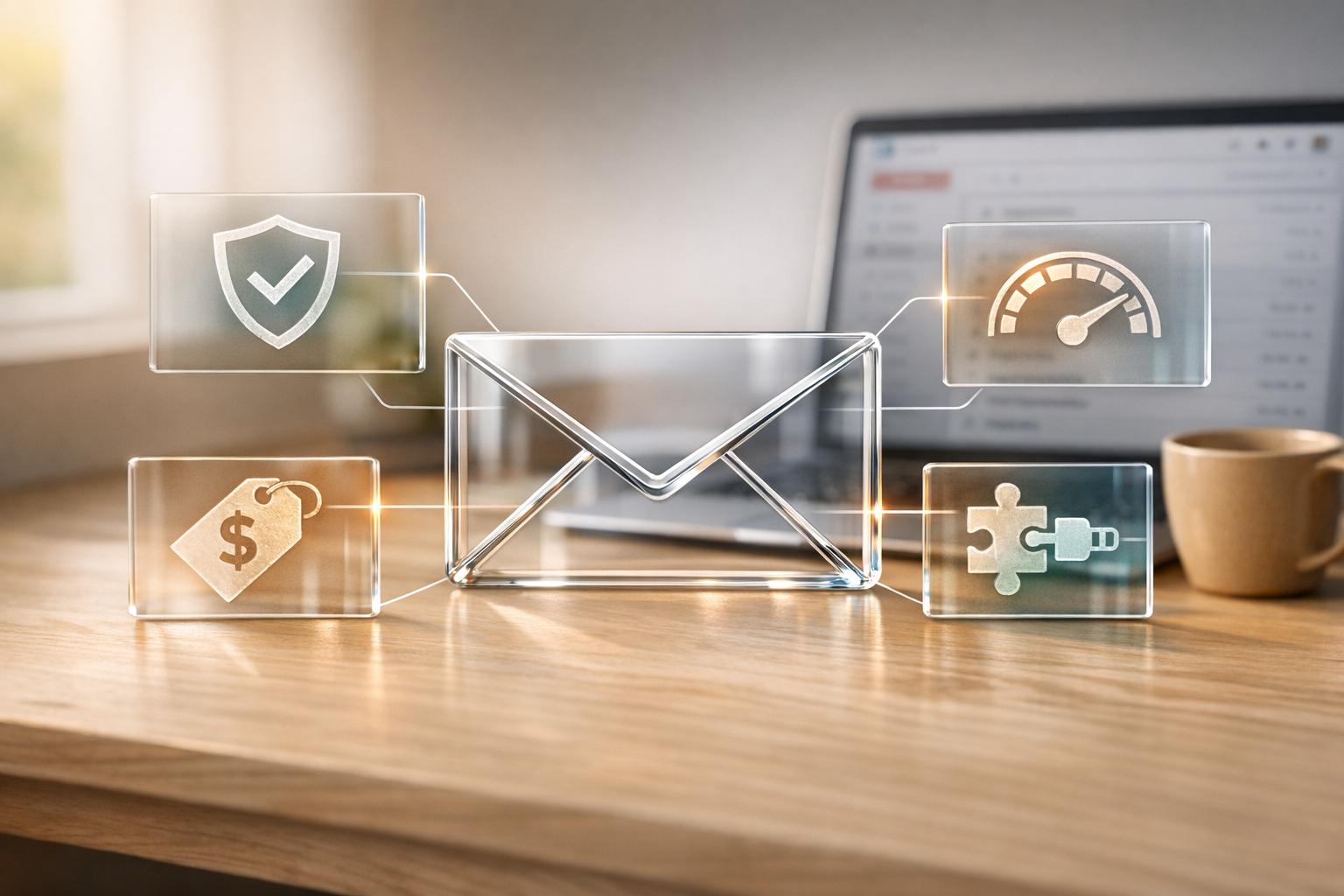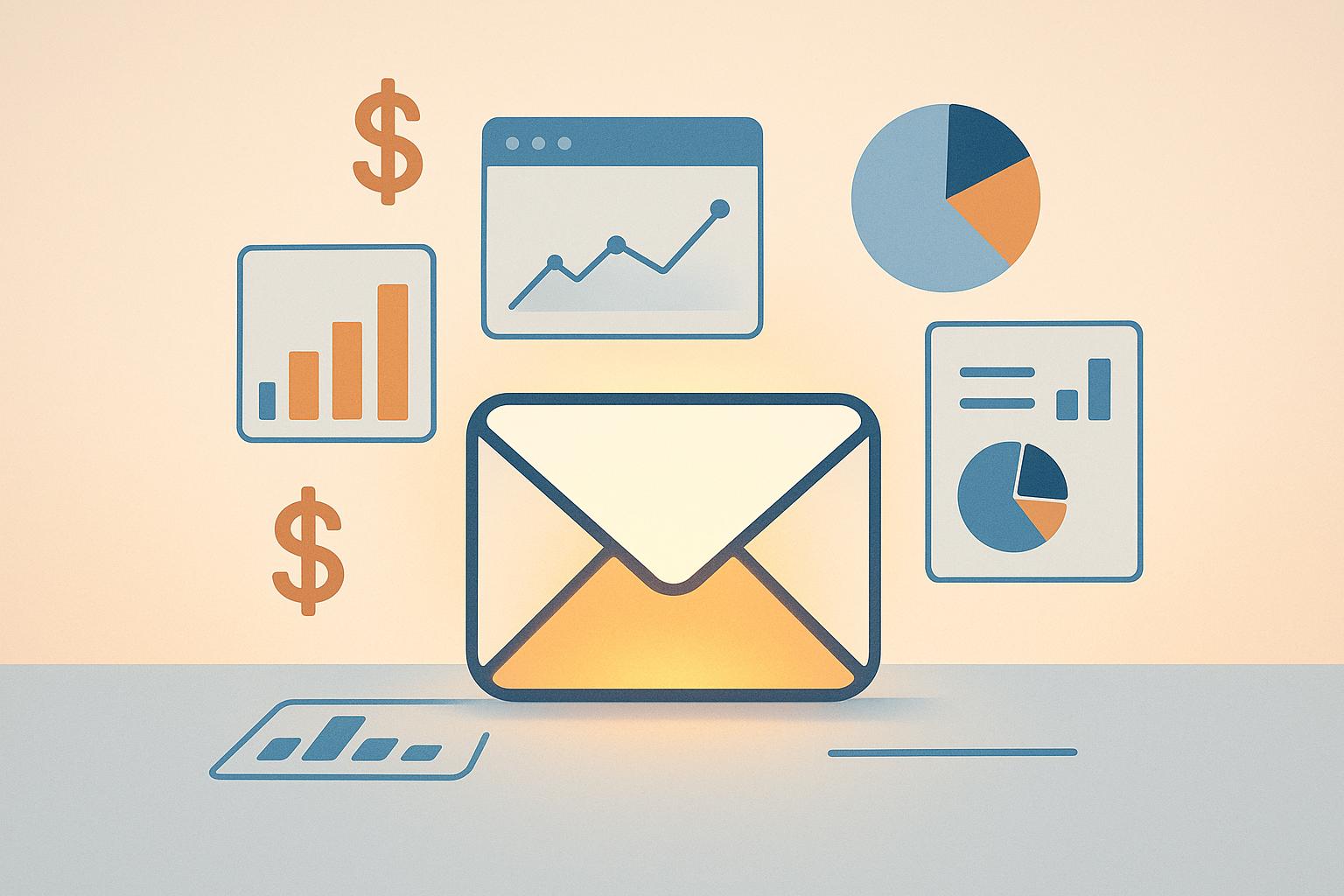Email marketing in 2025 has undergone major changes due to stricter global regulations focused on data privacy, security, and compliance. Here's what you need to know:
- Stricter Consent Rules: Explicit consent is now required for AI-driven and personalized email campaigns.
- Enhanced Security Protocols: SPF, DKIM, and DMARC are mandatory to protect sender reputations and ensure compliance.
- Cross-Border Data Rules: Handling data across regions now demands adherence to tougher international standards.
- Provider Requirements: Gmail, Yahoo, and others enforce stricter spam, bounce rate, and unsubscribe standards.
Quick Overview of Key Updates
- Laws: CAN-SPAM (US), GDPR (EU), and CASL (Canada) now align more closely on privacy and consent.
- Security: Advanced email authentication and encryption are essential.
- Compliance Tools: New systems simplify consent tracking, email validation, and security monitoring.
These updates mean businesses must prioritize consent management, secure data practices, and regular compliance checks to maintain their email marketing effectiveness. Start implementing these changes now to stay ahead.
How To Ensure Compliance In Email Marketing Automation ...
2025 Email Marketing Law Updates
The year 2025 brought new regulations aimed at improving data privacy and reshaping email marketing practices. These updates focus on stricter data protection measures and clearer compliance guidelines, particularly in campaigns using AI-driven personalization.
Regional Law Changes
Key regional laws have been updated to reflect the growing focus on privacy:
- The CAN-SPAM Act now requires businesses to disclose the use of AI in personalized and automated email campaigns.
- The GDPR demands explicit consent for data usage and stricter requirements for maintaining accurate data.
- Countries like Canada and Australia have adopted similar standards, aligning with global privacy trends.
These changes are paving the way for more consistent regulations across regions.
Global Standards Alignment
Efforts are underway to create a unified framework that simplifies compliance for businesses operating internationally. To stay ahead, companies need to focus on secure data practices, verified consent, and transparent opt-out options.
Here’s what businesses should prioritize:
- Strengthen security: Use advanced encryption and authentication to protect customer data.
- Manage consent effectively: Keep detailed records of when and how consent is obtained.
- Audit data practices: Regularly review how data is collected, stored, and used.
- Adapt to stricter rules: Ensure compliance with the toughest regional requirements for cross-border operations.
To support businesses, the Email Service Business Directory has updated its platform. It now offers tools to help navigate these regulations while improving the efficiency of email marketing efforts.
Email Security Requirements
Email providers enforce strict authentication measures to combat spam and avoid delivery issues.
Required Security Protocols
Three key protocols help verify the legitimacy of email senders:
- SPF (Sender Policy Framework): Confirms that the sending server is authorized to send emails on behalf of your domain.
- DKIM (DomainKeys Identified Mail): Uses a digital signature to ensure emails remain unchanged during transit.
- DMARC (Domain-based Message Authentication, Reporting & Conformance): Combines SPF and DKIM, offering clear instructions on handling failed authentication attempts.
For example, Spotify adopted advanced verification systems in March 2023. Over 60 days, they cut their bounce rate from 12.3% to 2.1%, saw a 34% boost in deliverability, and generated $2.3 million in additional revenue.
The Brand Indicators for Message Identification (BIMI) standard lets businesses display their verified logos in inboxes. This adds visual trust while requiring Verified Mark Certificates (VMCs) for added security.
Strong protocols like these not only protect sender reputations but also ensure compliance with email provider standards.
Email Provider Rules
Providers like Gmail and Yahoo introduced stricter requirements for bulk senders in 2025. Here’s what they expect:
| Requirement | Specification |
|---|---|
| Authentication | Full implementation of SPF, DKIM, and DMARC records |
| Spam Rate | Keep spam complaints below 0.1% |
| Bounce Rate | Maximum rate of 2% |
| List Hygiene | Regularly validate and clean email lists |
| Unsubscribe | Provide a one-click unsubscribe option |
To meet these standards, consider the following:
- Real-time email validation to block invalid addresses from entering your system.
- AI-driven engagement tracking to spot and remove inactive subscribers.
- Automated authentication checks to keep security protocols active.
- Ongoing reputation monitoring with tools tailored to specific email providers.
The Email Service Business Directory platform simplifies compliance by integrating automated verification, monitoring tools, and reputation management to optimize deliverability and maintain trust.
sbb-itb-6e7333f
Steps to Meet New Rules
Compliance Checklist
Preparing for the 2025 email marketing regulations involves taking clear, actionable steps. Here's a breakdown of what businesses need to do:
| Requirement | Implementation Steps | Verification Method |
|---|---|---|
| Consent Management | Track explicit opt-ins, maintain detailed records | Perform regular database audits |
| Data Privacy | Encrypt personal data, restrict access | Conduct security assessments |
| List Hygiene | Remove inactive users, verify email addresses | Schedule monthly list cleanups |
| Authentication | Configure SPF, DKIM, and DMARC records | Use technical verification tools |
| Unsubscribe Process | Enable one-click opt-outs, process within 24 hours | Test the process regularly |
To ensure compliance, conduct monthly audits of consent records, authentication settings, and subscriber data. Automating these tasks with specialized tools can save time and reduce errors.
Email Service Business Directory Tools

Leverage advanced tools to simplify compliance and streamline processes. Here are some options to consider:
Email Validation Solutions
- Validate email addresses in real-time for accuracy.
- Check syntax and domain validity.
- Use bounce prediction algorithms to reduce delivery issues.
- Integrate seamlessly with major email platforms.
Security Implementation Tools
- Automate configuration of SPF, DKIM, and DMARC records.
- Monitor security protocols continuously.
- Access compliance tracking dashboards for oversight.
- Get alerts for authentication issues.
Consent Management Systems
- Automate double opt-in processes for new subscribers.
- Store consent records securely for easy access.
- Generate compliance reports with ease.
- Integrate privacy policies into your email workflows.
For businesses of all sizes, there are tailored solutions to meet specific needs. The Advanced plan ($999/month) is ideal for growing companies, offering a range of features. For enterprises, the All-in plan ($2,999/month) provides unlimited contacts and priority support.
Rules and Security Reference Tables
The tables below provide a quick reference for key regulatory and technical requirements discussed earlier, helping ensure compliance.
Email Marketing Laws Table
Global email marketing rules for 2025:
| Requirement | CAN-SPAM (US) | GDPR (EU) | CASL (Canada) |
|---|---|---|---|
| Consent | Allows implied consent in certain cases | Requires explicit consent | Mandates clearly obtained consent |
Disclaimer: This table offers a general overview. Always consult official regulatory resources for complete and accurate compliance details.
Security Protocols Table
Key security protocols are essential for maintaining deliverability and protecting sender reputation:
| Protocol | Purpose |
|---|---|
| SPF | Confirms the sending server's identity |
| DKIM | Ensures the message has not been tampered with |
| DMARC | Establishes policies for authentication and reporting |
Using these protocols can improve email performance. For instance, Seventh Sense's AI-based implementation has shown measurable increases in engagement metrics.
For seamless integration of these standards, revisit the compliance steps outlined earlier.
Conclusion
The rules for 2025 bring stricter security requirements, explicit consent mandates, and a more unified approach to global email standards. Businesses need to act quickly to stay compliant and protect their sender reputation.
New authentication protocols like SPF, DKIM, and DMARC are now mandatory. These tools are essential for maintaining email deliverability and avoiding penalties. They also lay the groundwork for advanced compliance tools.
The Email Service Business Directory offers key solutions, including:
- Tools for email validation to keep your lists clean
- Automated security features
- Systems for managing consent seamlessly
Companies need to implement stronger security measures while still delivering personalized experiences. The Directory provides options for all budgets, from small business tools starting at $299 to enterprise-level solutions offering comprehensive compliance support.
FAQs
What are the key changes to global email marketing regulations in 2025, and how can businesses stay compliant?
In 2025, global email marketing regulations introduced stricter guidelines to enhance consumer privacy and reduce spam. To stay compliant, businesses should focus on the following:
- Obtain explicit consent: Ensure you have clear, documented permission from recipients before sending marketing emails.
- Provide easy opt-out options: Include a visible and functional unsubscribe link in every email.
- Maintain accurate records: Keep detailed records of consent, email lists, and campaign performance for auditing purposes.
Additionally, staying updated on local and international laws, such as GDPR or CAN-SPAM, is crucial. Consider using reliable email marketing tools or platforms that offer features like compliance tracking and list management to simplify adherence to these rules.
How can businesses ensure proper explicit consent for AI-powered email campaigns?
To effectively manage explicit consent for AI-driven email campaigns, businesses should follow these key steps:
- Make consent clear and unambiguous: Use straightforward language to explain how AI will be used in email campaigns and what subscribers can expect. Avoid complex jargon that may confuse users.
- Provide detailed opt-in options: Allow users to actively select their preferences, such as the types of emails they want to receive or how their data will be processed. Ensure these options are easy to understand and accessible.
- Regularly update consent records: Maintain accurate and up-to-date records of user consent, including timestamps and details of what was agreed to. This helps demonstrate compliance with evolving regulations.
By prioritizing transparency and user control, businesses can build trust while staying compliant with global email marketing regulations.
What updates were made to SPF, DKIM, and DMARC protocols in 2025, and how do they improve email security and deliverability?
The 2025 updates to SPF, DKIM, and DMARC protocols focus on strengthening email authentication and reducing the risk of phishing and spoofing attacks. These protocols now require stricter alignment between sender domains and authentication records, ensuring that only authorized senders can deliver emails on behalf of your domain.
By improving authentication accuracy, these updates help businesses maintain better sender reputations, which in turn enhances email deliverability rates. Adopting these updated protocols ensures your emails are less likely to be flagged as spam, keeping your campaigns secure and effective.


